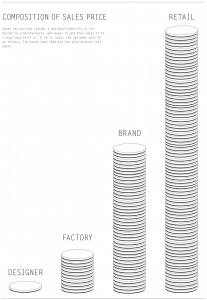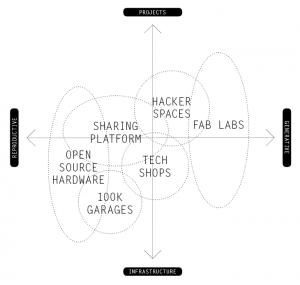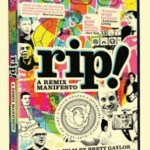OPEN DESIGN NOW

Openness is still very much a choice, not a default. If it were a default, there would be no need for directions, ideological or not. Ideological efforts need rules, codes of conduct, manuals, bills, declarations, manifestos, often very precise and helpful, sometimes too dogmatic (‘wannabe blueprints’), sometimes agnostic, on occasion hilarious. Like the revolution of digitally sharing designs that can be executed all over the world just by pushing a button, wouldn’t it be super if a revolution manifesto took effect by default?
manifestos contents in Open Design Now:
Mushon Zer-Aviv describes his efforts to teach open source design as an attempt to investigate why collaborative work combined with individual autonomy has not been common practice in design, as it is in open source software development. He discusses whether … Continue reading
Renny Ramakers talks about Droog’s latest project Downloadable Design, about making money, designing for the masses, the development of the design profession, and Droog Design’s recent experiments and research in sustainability, local production, co-creation, upcycling and collective revitalization of the … Continue reading

The mediocracy of the middle classes dominates the current mass production design. In a world less controlled by branding and regulations, a new breed of designers can contribute to an altered, more honest economy. An interview with Dutch designer Joris Laarman, … Continue reading
This portrait of open designer Ronen Kadushin reveals his vision of ‘opening’ industrial design and putting the designer firmly back in the centre of the design process. It tells of successful examples of Ronen’s design practice – the Hack Chair, … Continue reading

Mapping the landscape of commons-based peer production, Peter Troxler analyses the arena of open source hardware and looks into various initiatives being spawned by fabrication labs, trying to identify their business potential and asking how these initiatives contribute to giving … Continue reading
Open design is not a clear and unambiguous development or practice. Jos de Mul names a few of the problems he perceives with open design, without venturing to suggest any indication of how they might be solved. He then goes … Continue reading

Openness is still very much a choice, not a default. If it were a default, there would be no need for directions, ideological or not. Ideological efforts need rules, codes of conduct, manuals, bills, declarations, manifestos, often very precise and … Continue reading
The pioneers of our time are not taking the world at face value, as a given from outside; rather, they see the world as something you can pry open, something you can tinker with. Marleen Stikker In his novel The … Continue reading